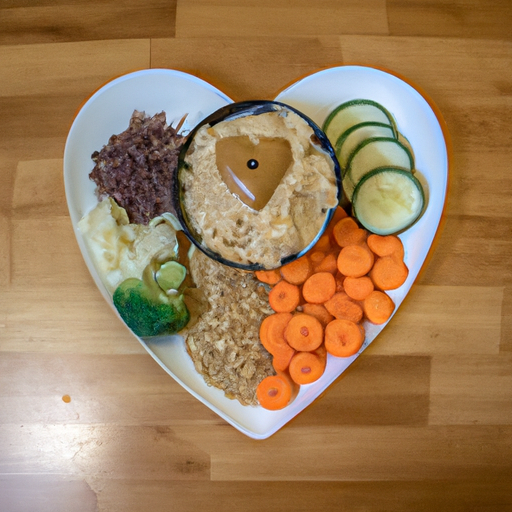As a caregiver to your beloved fido, you want to ensure they receive the best nutrition possible. However, it can be confusing to determine what foods are safe for your canine companion. This guide will help you navigate the wide world of dog-friendly foods.
1. Proteins
Dogs are carnivores by nature, so meat should form a significant part of their diet. Here are some safe options:
- Chicken: Cooked chicken is a great source of protein for dogs. Ensure it’s boneless and skinless – bones can splinter and cause choking, while the skin can be too fatty.
- Beef: Lean cuts of beef are another excellent protein source. Cook it thoroughly to avoid bacterial infection.
- Fish: Certain types of fish, like salmon and tuna, contain omega-3 fatty acids which are beneficial for a dog’s coat and skin. Make sure the fish is cooked and deboned.
- Turkey: Turkey is another lean meat option for dogs. Avoid seasoning or using garlic and onions, as these can be toxic to dogs.
2. Dairy Products
Dairy products can be a good source of calcium and protein, but remember, some dogs are lactose intolerant and may not digest dairy well. Here are some safe options:
- Cheese: Small amounts of cheese can be a good treat.
- Yogurt: Plain, unsweetened yogurt can be good for your dog’s digestive system.
3. Fruits
Fruits can be a tasty and healthy treat for your dog. Remember, seeds, stems, and leaves often contain toxins, so always remove them.
- Apples: Apples are a great source of vitamins A and C. Remove the seeds and core before feeding.
- Bananas: High in potassium and vitamins, bananas are a good treat in moderation due to their high sugar content.
- Blueberries: These tiny fruits are packed with antioxidants and fiber.
4. Vegetables
Vegetables are a good source of vitamins and fiber. Remember to cook most vegetables to make them more digestible.
- Carrots: Carrots are low in calories and high in fiber and vitamins. They can be served raw or cooked.
- Green beans: These are safe for dogs to eat and are packed with iron and vitamins.
- Sweet potatoes: These are a great source of dietary fiber, vitamin B6, vitamin C, and beta carotene.
5. Grains
Certain grains can provide your dog with valuable energy, but always use in moderation as too many grains can lead to obesity.
- Rice: Cooked rice can be a good source of energy. Brown rice contains more nutrients, but white rice is easier to digest.
- Oats: Cooked oats are safe for dogs and can be a good source of fiber.
6. Treats
Just as with humans, treats should form a small part of your dog’s diet.
- Peanut Butter: It’s a good source of protein and healthy fats. Make sure to choose a brand without xylitol, as it’s toxic to dogs.
- Popcorn: Unsalted, unbuttered popcorn can be a fun treat. Make sure all kernels are popped.
7. Unsafe Foods
To help you avoid dangerous mistakes, here’s a list of foods that are commonly toxic to dogs:
| Food | Reason |
|---|---|
| Chocolate | Contains theobromine, which is toxic to dogs. |
| Grapes & Raisins | Can cause kidney failure. |
| Onions & Garlic | Can cause blood cell damage. |
| Xylitol | Can lead to liver failure. |
8. FAQs
Q: Can dogs eat eggs?
A: Yes, eggs are safe for dogs as long as they are fully cooked.
Q: Are all vegetables safe for dogs?
A: No, certain vegetables like onions and garlic are toxic to dogs.
Q: Can dogs have milk?
A: While not toxic, many dogs are lactose intolerant, so it’s best to avoid.
Q: Is bread safe for dogs?
A: Yes, but it should be given in moderation.
This guide is not exhaustive, and it’s always best to consult with your vet before introducing new foods into your dog’s diet. Remember, moderation is key. Happy feeding!



